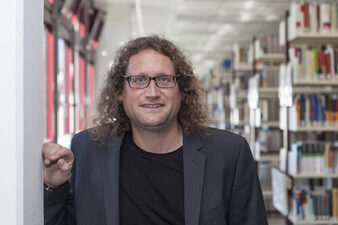A picture coloring book in the native language isiZulu is intended to teach African children in slums in a playful way how important hygiene is in times of corona. The idea came from Fachhochschule Dortmund and is being implemented in cooperation with universities and NGOs in KwaZulu-Natal.
Developing and emerging countries are being hit particularly hard by the consequences of the coronavirus pandemic. While access to social work counseling services was already limited in rural areas of South Africa, restrictions on public life are further exacerbating this precarious situation.
Prof. Michael Boecker has been researching issues in the context of the consequences of globalization with South African universities since 2019.
He knows from discussions with his cooperation partners that the pandemic is making it increasingly difficult to reach children in the suburbs. Children are more often asymptomatic after an infection than adults, but can still contribute to the spread of the virus. Teaching them appropriate hygiene measures in a playful way is the aim of an idea that emerged from the advisory practice. The focus is on corona. However, hygiene measures are also important in the fight against other diseases.
Fachhochschule Dortmund supports coronavirus prevention work in South Africa
A picture and coloring book for 6 to 12-year-olds is intended to provide child-friendly information about Covid-19 and show coping strategies for quarantine and mourning. The project was conceived at Dortmund University of Applied Sciences and Arts. Michael Boecker: "What makes it special is that it is written in the native language and is geared towards the realities of life for local people." For example, washing hands in underdeveloped areas does not mean turning on the tap in the bathroom, but requires long walks to the nearest fountain and queuing without any distance.
The project participants are well aware that the demand for social distancing is reaching the limits of reality. "And also that corona is not the biggest problem for many people in Africa, but just one alongside HIV, tuberculosis and poor hygiene conditions, for example," says Boecker. Nevertheless, the aim is to raise awareness of the problem and draw attention to key issues. The first 400 copies of the picture book are to be distributed to families in 2020. A second edition is already being planned.
The project is funded by the DAAD with funds from the Federal Ministry for Economic Cooperation and Development (BMZ).
Prof. Michael Boecker, Dr.
Appointments can be arranged at short notice by e-mail

